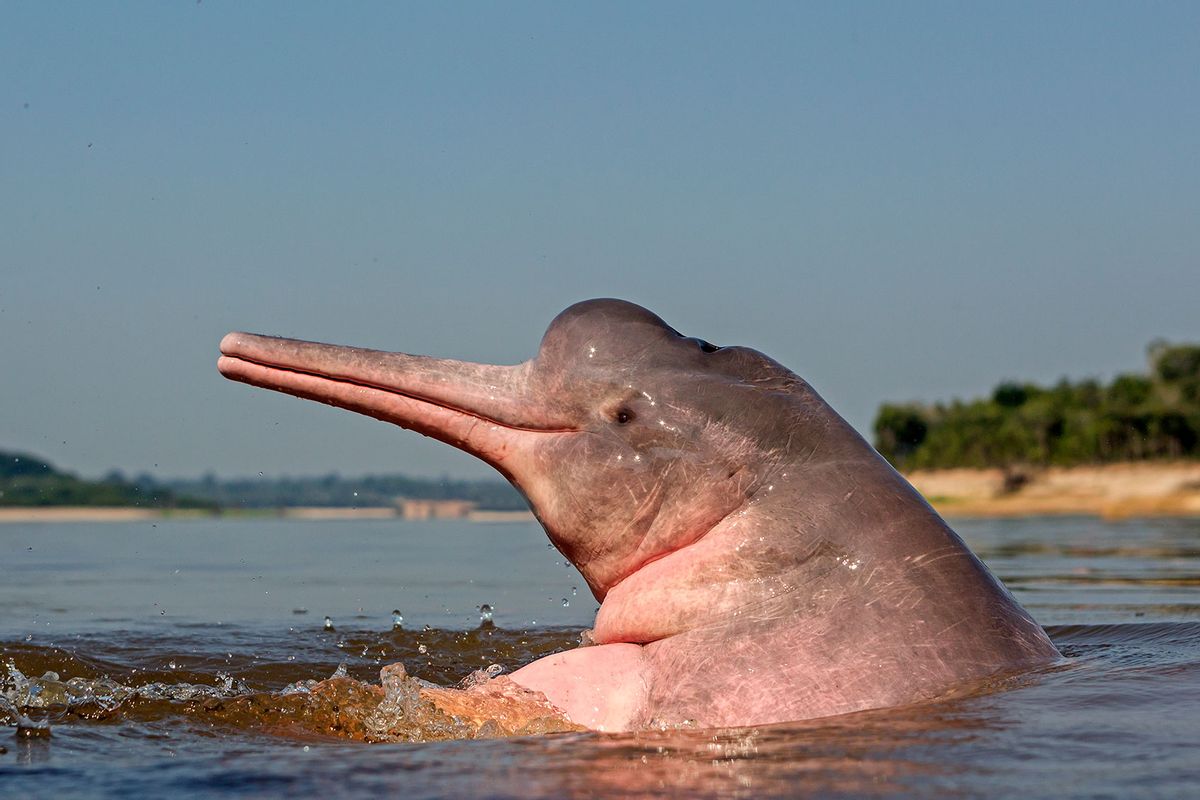Jacuzzi-level temperatures of the Amazon River have killed more than 100 pink river dolphins (Inia geoffrensis) in Brazil over the past week after more than 120 carcasses were seen floating in Lake Tefé, which is connected to the Amazon River.
According to the Mamirauá Institute, a research facility funded by the Brazilian Ministry of Science, the dolphins’ deaths can likely be attributed to a historic drought and record-high water temperatures, which in some places have exceeded 102 degrees Fahrenheit — the same heat of a typical Jacuzzi. Not only is this intolerably warm for the river dolphins, but it also reduces the oxygen levels in the water, which render the area even more unliveable.
“It’s still early to determine the cause of this extreme event but according to our experts, it is certainly connected to the drought period and high temperatures in Lake Tefé,” explained the Mamirauá Institute in comments carried by CNN affiliate CNN Brasil. Amazon river dolphins are among the handful of surviving freshwater dolphin species. They are found only in South America’s rivers and experts believe this particular group may have already lost 10 percent of their population in Lake Tefé, which Mamirauá researcher Miriam Marmontel told Reuters “could threaten the survival of the species in Lake Tefé.”
Summer 2023 contained the hottest three months recorded in human history, a development that has led to extreme weather events from worldwide wildfires and intensified tropical storms to flooding from New York City to Libya. While humans have naturally focused on how these developments have impacted our own species, they are far from alone in their suffering among intelligent mammals.

